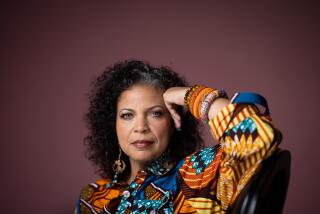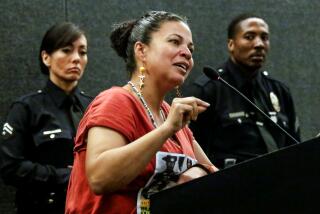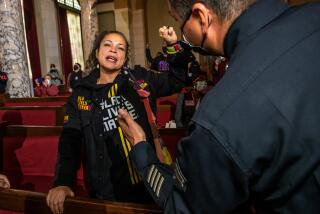#LivingWhileBlack: New laws could outlaw racially motivated 911 calls

The hashtag #LivingWhileBlack went viral on social media in the last two years as videos proliferated of incidents around the nation in which white people called police on black people going about their everyday activities.
The most well-publicized episodes came last year, including two black men confronted by Philadelphia police after asking to use a Starbucks bathroom without first having made a purchase; a black Yale graduate student questioned by cops for napping in a dorm common room; and a black man in Oakland whose wife filmed his encounter with a woman who dialed 911 to say he was illegally barbecuing in a park.
A lesser known one took place in 2017 in Grand Rapids, Mich., on a June afternoon when squad cars showed up at a public park during a graduation party. The event was permitted, the attendees were mostly black, and they said a noise complaint against them was really about white residents who were uncomfortable with a large gathering of black people. That instance, and another last September in which police handcuffed two unarmed black 11-year-old brothers after a phone call reported a teen with a gun, added to complaints about race and 911 calls, as well as policing, in western Michigan.
Now, the city of 200,000 could be among the first in the country to make such calls illegal. A proposed ordinance would make it a “criminal misdemeanor to racially profile people of color for participating in their lives” and subject people behind those 911 calls to a $500 fine.
“A policy like this makes it so people have to think about whether their decision to call 911 is grounded in something significant,” said Senita Lenear, a Grand Rapids city commissioner who is the first black person in her position. “Our resources can’t be wasted on police addressing nonissues. You can’t ignore that people of color are the ones who have been victimized.... That is a part of a pattern.”
The debate in Grand Rapids joins efforts to either outlaw or discourage similar calls introduced by elected officials in Oregon and New York and which activists have pushed for elsewhere.
In Oregon, Democratic state Rep. Janelle Bynum was going door to door in her district outside Portland to speak to constituents in July when a resident called police on her because she looked “suspicious.” Now, Bynum is backing a bill that would allow victims of racially biased 911 calls about non-crimes to sue the callers in small claims court for up to $250.
“I thought my incident was isolated and odd, but as time went on I realized, no, it’s not,” said Bynum, who is black. “My goal has always been to spark a conversation on issues, especially in Oregon where people don’t have a great understanding of civil rights history.”
Bynum’s proposal recently passed the state’s House and a Senate committee. In Grand Rapids, the proposed ordinance has received a mix of support and criticism at City Commission meetings. Other attempts to enact such laws, including measures proposed last year by state legislators in New York and Michigan, have failed.
Opponents of each have raised similar concerns. One is that making false crime reports is already illegal in many parts of the U.S. Another is that although it’s relatively easy for police who show up at a scene to determine that there’s no crime, it’s harder to decide whether the 911 caller was acting in a racist manner in making a report.
Ronal Serpas, a criminal justice professor at Loyola University New Orleans, questioned whether the potential laws would discourage people from calling police when there are real crimes.
“We don’t want to thwart people from calling when they think there is something suspicious in their neighborhood,” he said. “But we don’t want it to be a racial proxy. We can do both. Whether we need new laws, I don’t know.”
In Grand Rapids, the proposal is part of a larger human rights ordinance that has been under debate since early this year. A vote scheduled this month was pushed back to allow more community input and because of questions over how such a law would work in practice.
Jeremy DeRoo, executive director of the Grand Rapids community development nonprofit Linc Up, has attended commission meetings to show his support.
“Police can charge a person for filing a false report, but this puts more power in the hands of the person who has police called on them,” said DeRoo.
One city resident who gave only his first name, Joshua, showed up at a commission meeting last month to voice opposition.
“It is good that we as a community value leaving people alone and letting them live their lives without fear of discrimination, but we already have laws saying it’s illegal to discriminate based on their class, and to create additional redundant legislation does nothing,” he said.
Juanita Ligon, the mother of the twin boys who were handcuffed last year in Grand Rapids on the false suspicion that one of them was carrying a gun, disagreed.
“There are too many people calling police on people in the community who are just going about their business, like they did with my sons,” Ligon said. “My only concern is that police would use the ordinance to blame any wrong things they do to the community on the people who make the 911 calls.”
In a statement, the city’s interim police chief, David Kiddle, declined to take a position.
“I look forward to the community and stakeholders having the opportunity to weigh in and discuss the proposed ordinance and I look forward to working with the city as it moves forward,” he said.
More to Read
Sign up for Essential California
The most important California stories and recommendations in your inbox every morning.
You may occasionally receive promotional content from the Los Angeles Times.











